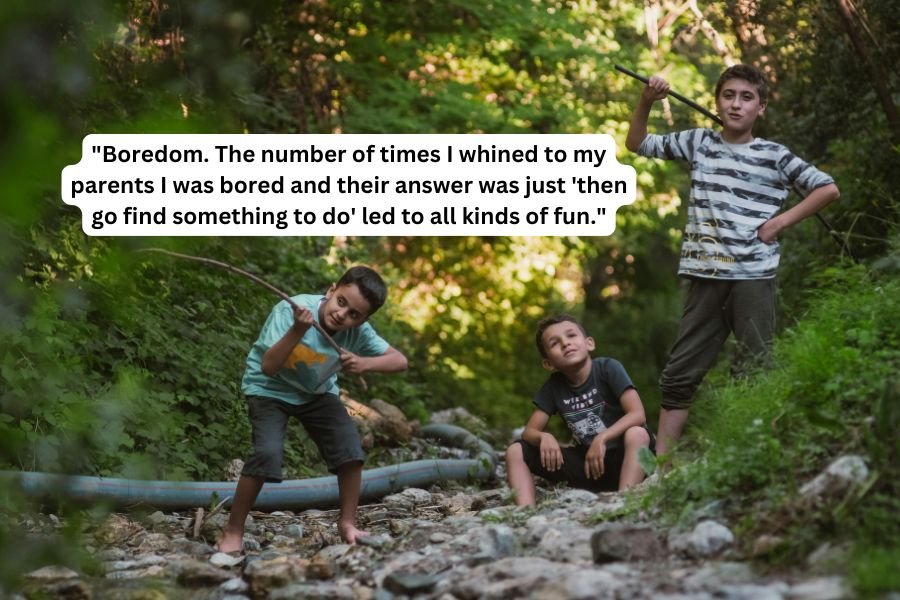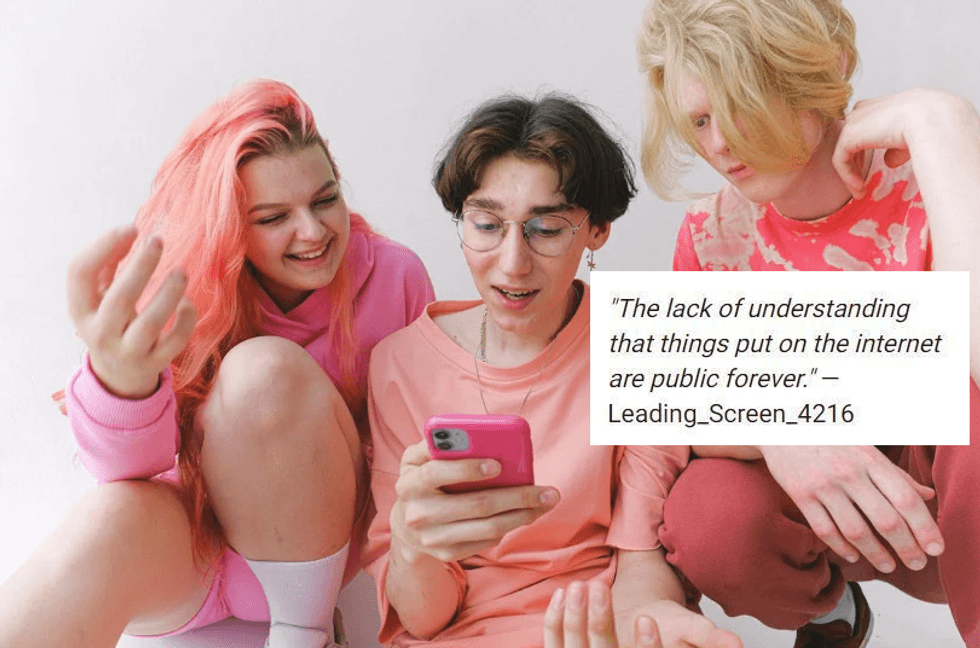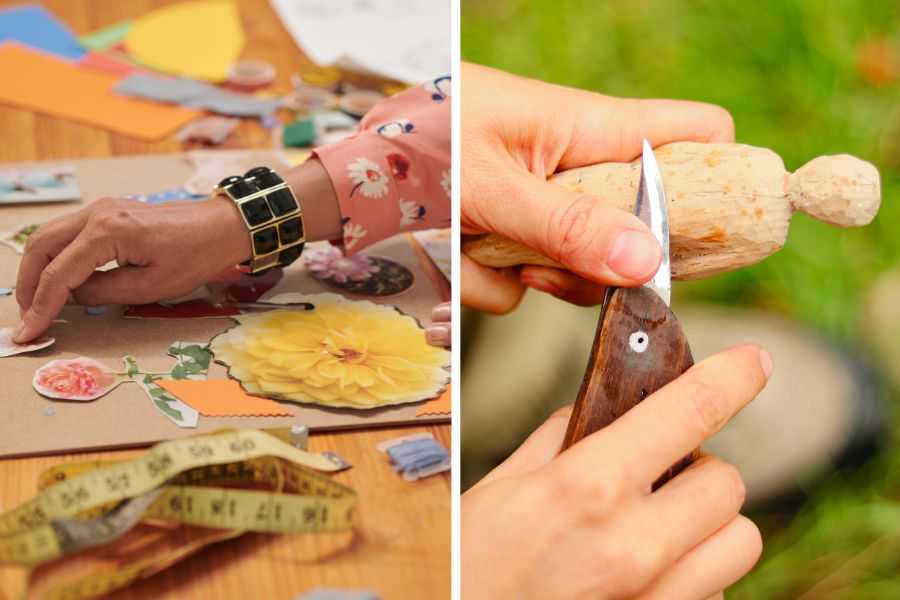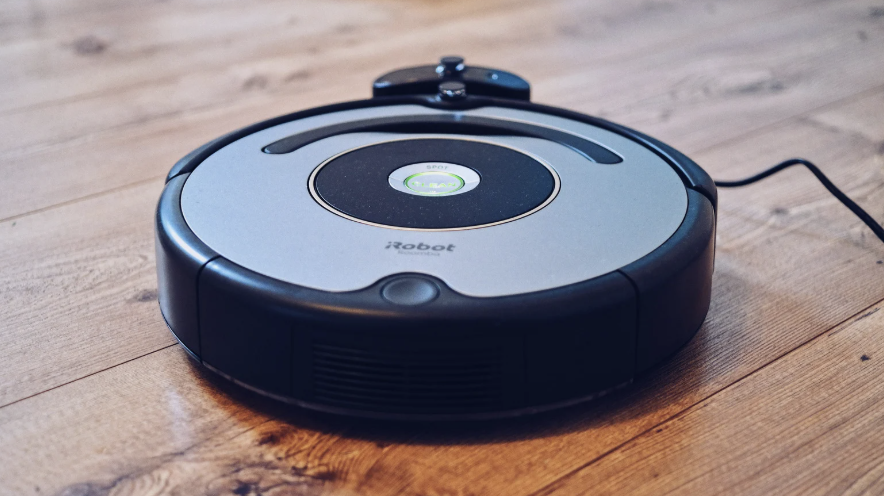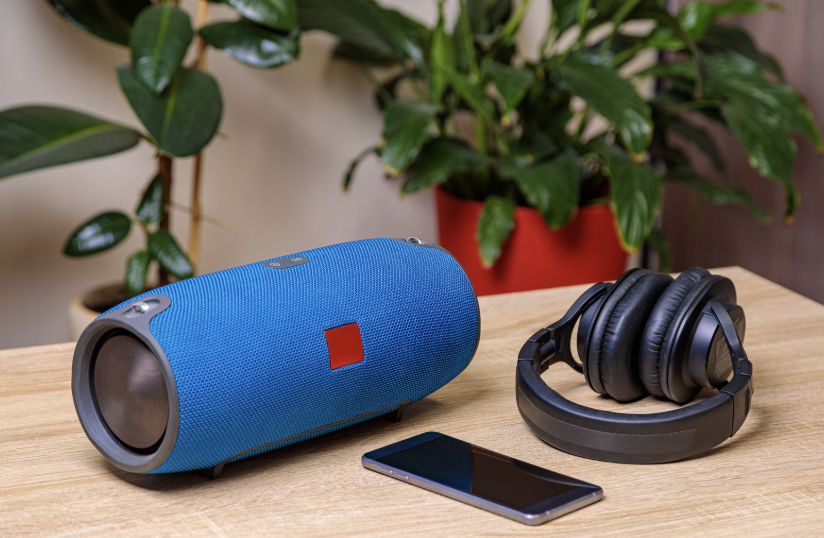Those of us who grew up in the age before the internet have memories that today’s young people will likely never have. Boomer and Gen X childhoods were simpler in many ways, not having access to endless entertainment or the pitfalls of the online world to contend with on a daily basis.
The internet has arguably made human life better in many ways, but it has also fundamentally changed what growing up looks like. Where the older generations had a handful of TV shows at set times on limited channels, younger folks can binge watch streaming shows and YouTube channels 24/7. Boomers used manual typewriters while millennials had laptops. Gen X carried Walkmans while Gen Z carries smartphones.
And that’s just technology. The world has changed in other ways, too, including greater safety awareness that’s changed the way people parent and kids having less access to untouched nature. Change isn’t inherently good or bad, but there are definitely some nostalgic elements of boomer and Gen X upbringings that those older generations wish today’s young people could enjoy.
Here are some top answers to the question, “What is something you grew up with that you wish younger generations to experience?” from people born before 1980 on Reddit.
Being unreachable
“The freedom to be unreachable and unaware of what everyone on earth is doing at any given time, meaning … life pre-iphone and pre-social media.”
“Pre CELL phone. Pre pager. (I mean, I know early cell phones were around but virtually no one had them pre-1993 and certainly no one expected or even considered them except high paid business folk).”
“Yes, I came here to say anonymity but being unreachable was so nice.”
“I remember leaving my phone home and not thinking anything of it. Now it’s not even ‘optional’. Phone is firmly a part of the ‘keys, wallet’ checklist before leaving the house.”
“Yes, having people be able to reach out to you 24/7 is not a good thing.”
Unrestricted, unsupervised outside exploration
“Running wild outside in the country for entire day without even considering anything that could go wrong.”
“We used to just run around the woods by my friends house, and had tree forts and rode bikes around to the neighborhood kids houses. No concept of time outside of sunset. I think that might get lost in the shuffle more today.”
“This would be mine as well. Hop on your bike with a friend or two and head out. Maybe to the creek or the woods or the dime store downtown. Just an amazing aimless wandering with no fear of being accosted by anyone. A quick ten cent phone call home to let mom know where you were. Just be home for dinner. Our era had the best childhood ever.”
“This is true. I would wander for miles. But the thing is, looking back I can now see more than a handful of incidents that I was very lucky to escape by the skin of my teeth. I’m talking about hitchhiking or telling my parents I was sleeping over someone’s house, them telling their parents they were sleeping at mine and then staying out all night. Stuff like that. It was fun- good times but when I think of MY kid or grandkids doing the same thing I want to throw up.”
The joy of wonder without answers
“Wonder. Sometimes we would just wonder about something. Watching a movie with friends. Someone says ‘I wonder if William Holden is still alive?’ Everybody would shrug and say ‘I don’t know’ and you go on with your lives.”
“Something humbling and wonderful about not knowing. Now with so much knowledge literally in our hands, we have this anxious ‘need to know’ everything. And everyone has become a Tik Tok expert.”
“Or allowing mysterious, wondrous stuff exist without explanations that are instantly available to remove the sense of awe about how odd, crazy, wonderful, talented, insane, or whatever our world can be.”
“The world was more of a mystery back then. That has both its upsides and downsides, but I can’t help but feel that some of the wonder has dissipated.”
The gift of boredom
“Boredom. Boredom breeds creativity. Boredom has been removed from their lives.”
“The skills you gain from the experience of being bored, every now and then. Principally, how you can develop that inner voice, which has been my friend on many occasions and saved my bacon many more. If you always rely on external sources for information or support you’ll surely get stuck when things go wrong or you have to make a decision quickly.”
“Boredom leads to reading plus learning to play instruments.”
“While I’m happy my kids made friends online the desperation of boredom and creating your own things was really important for me.”
“Boredom. The number of times I whined to my parents I was bored and their answer was just ‘then go find something to do’ led to all kinds of fun.”
The freedom to make mistakes
“Being able to make a mistake without it going viral online.”
“Experiencing awkward coming of age scenarios without being documented in a server farm somewhere with world wide access.”
“I’m sorry kids don’t have the chance to make mistakes and correct them without it being memorialized online to follow them forever.”
“Being able to break things and make mistakes… the cost is way too high now.”
Tactile pleasures
“The satisfaction that comes with slamming down a landline phone receiver.”
“Encyclopedias.”
“Paper maps. I’d love to see someone in this day and age successfully use (and fold back to its original form) a paper map.”
“Reading a book instead of playing video games (most useless invention possible). I’m actually old enough to remember no TV in the house and no radio either (my parents read newspapers and magazines instead for their news but it’s a much slower feed and more local).”
“The thrill of buying a vinyl album. I know you can still do that, but it just doesn’t seem the same. Back in the ’60s and ’70s they were absolute TREASURES.”
“Sleeping on sheets that had been dried out on a clothesline in spring. The scent on those sheets was intoxicating.”
Travel feeling more adventurous
“Going on a road trip with your friends to somewhere you’ve never been, navigating your way there with a road atlas, and then exploring it without consulting any online reviews or suggestions from Google Maps.”
“Experience world travel the way it used to be. There was a time when traveling to another country was a big deal and it was adventurous.
Now, we can buy a last minute ticket on a flash sale, read about the destination on the way to the airport, watch Hollywood movies on the plane, rent a car from a familiar brand, stay at a known hotel chain, eat familiar food and use your GPS to guide you around while you chat in real time with your friends.
Travel is still fun but the magic and romance are mostly gone. That feeling of being far away and completely submerged in a strange culture almost doesn’t exist anymore. It’s too easy and homogenized now.”
“So true. Even back in the early 2000s I remember being on a bus in South America with an American 19 year old who was really captivated by the idea that I travelled in the 1970s “before email.” You had to wait two weeks to receive any kind of letter at the General Delivery post office of whatever country you were in. There was so much freedom in that, and a real submersion into the local culture, an ability to let go of your cultural touchstones and become someone new.”
“The old way of traveling meant there was a lot of serendipity happening. You’d head to some town you knew nothing about and get chatting with someone on the bus who would then invite you to stay at their house. They would feed you and show you around, help you navigate whatever you needed to head on your way. A lovely way to meet people and learn about nearby treasures to see that you knew nothing about. Now , everything can be researched and plotted out beforehand. I still travel in an unplanned way, with no agenda, no lodgings figured out, but when I mention it, other people shudder and say their anxiety wouldn’t allow it. Did we not have anxiety in the old days? Yes, we did, but it was all part of taking risks in life.”
There’s a lot that’s better, easier, faster and more convenient about life in the 21st century, but there really was something special about growing up in the pre-internet days, wasn’t there?
This article originally appeared last year.


